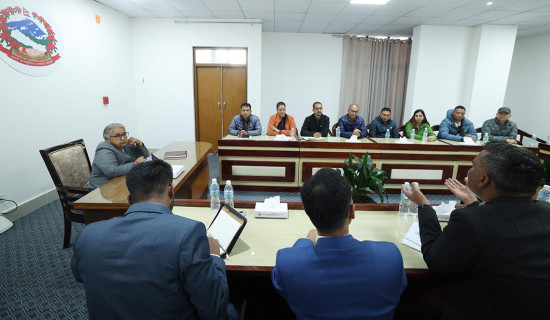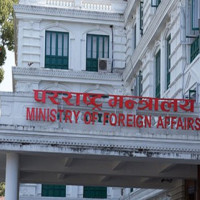- Monday, 1 December 2025
Shocking Death
The whole country has been shocked to learn that Bipin Joshi, who was held hostage by Hamas, a Palestinian militant outfit, for more than two years, is no more. There was a widespread hope that he would return home alive. This optimism was not only fueled by the 'wish' of his family and Nepali people but also by continuous media coverage – including that of The Washington Post and many other news outlets in Nepal and abroad – that he was alive. In Nepal, YouTube channels and social media influencers and journalists were competing to announce and share the news of his being alive, as to international media said, "Bipin's name was included in the list of the final batch of hostages being released on Monday."
But Hamas handed over his body along with three other bodies. Bipin's family, which was resisting any news that would indicate towards the death of the 24-year-old youth, who went to Israel under the government-to-government 'Learn and Earn Programme' in September 2023, is now in great grief at this unexpected loss. In the past two years, the government has implemented various efforts to secure the safe release of Bipin. There were high-level communications between Nepal and Israel, Nepal and Qatar, Nepal and Syria and Nepal and the USA for the same, but those efforts to bring Bipin home alive failed.
Being a Least Developed Country with poor per capita income and a few job opportunities at home, Nepal lacks better options to stop its youth who are flying abroad in search of jobs and better education. A workforce of more than 500,000 enters the market every year, but fewer than 100,000 jobs are created at home. So, the country should have a workable policy for the safety and security of its citizens in a foreign land.
The government should also publish an advisory for Nepalis travelling and working in the country and areas with potential terror attacks and natural disasters, and mandatorily orient them about the dangers and staying safe from them. Risk communication is mandatory, with a priority on pre-travel briefings. The embassies and diplomatic missions in such countries or with jurisdiction over them must maintain a comprehensive list and contact information of Nepali nationals working or residing there. Meetings and information updates should happen periodically.
Nepali citizens must be encouraged to use the pre-travel registration system, and they should be provided with 24/7 emergency hotlines, while the missions should have a team and a plan for evacuation and contingency. Past experiences have shown that Nepal has time and again failed in rescuing its citizens from the disaster or terror-hit areas, such as Iran and other locations in West Asia, with Afghanistan being an exception.
An equally important move that Nepal should adopt is diplomatic neutrality, which it failed in the case of the Russia-Ukraine war and Israel's war against Hamas in Palestine. Nepal exhibited diplomatic activism by supporting Ukraine and Israel, where it should have maintained neutrality or at least learnt from its immediate neighbour, India, which successfully struck a balance among the various global power centres. Likewise, instead of directly communicating with Hamas, Nepal's government thought that it fulfilled its duties by reaching out to Qatar, the negotiator of peace between Israel and Hamas, and other comparatively distant stakeholders. Now, the country should learn a lesson from the tragic killing of Joshi and act to prevent similar incidents in the future.

















